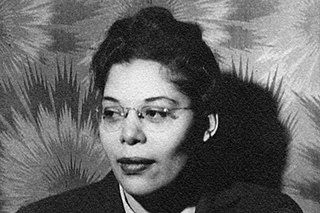A Quote by Walter Mosley
When I went to school, there were no Black philosophers, at least none that I was aware of, who were recognized by Western universities.
Quote Topics
Related Quotes
The fact is that in my prep school, I went to a boarding school, 39 young men graduated from that prep school. Five years later, a quarter of us were in SDS, in Students for Democratic Society. Not because we were particularly chosen or because we were as I say, we were lucky but we were mainly luckily to grow up at a time where this black freedom movement was really defining the moral character of what it meant to be a citizen and a person.
There was a Yale even before Larry [Kramer] and I got there, and there were three designations of students: "white shoe," "brown shoe," and "black shoe." "White shoe" people were kind of the ur-preppies from high-class backgrounds. "Brown shoe" people were kind of the high school student-council presidents who were snatched up and brushed up a little bit to be sent out into the world. "Black shoe" people were beyond the pale. They were chemistry majors and things like that.
Black was bestlooking. ... Ebony was the best wood, the hardest wood; it was black. Virginia ham was the best ham. It was black on the outside. Tuxedos and tail coats were black and they were a man's finest, most expensive clothes. You had to use pepper to make most meats and vegetables fit to eat. The most flavorsome pepper was black. The best caviar was black. The rarest jewels were black: black opals, black pearls.
History has proven that art depicting black people cannot be disentangled from the political implications that such art has on their lives. As Africans were being stripped from the continent and sailed across the Atlantic to the Western world, depictions of black people in Western art changed in order to further render them racialized caricatures.
One of the things I recognized early on, doing whatever studies of black history I have, is that even though black folks were transported as slaves, into servitude, when they were carried out of Africa they left empty-handed, but they didn't leave empty-headed. They carried with them the culture they knew, the culture they had, and that culture reconstituted itself in all the places they went.
I have never understood why they tried to start the revolution by taking over the universities. It should have been self-evident that the net result of success would be to close the universities but leave the nation unaffected--at least, for quite a long time. Nor do I find it easy to believe that the rebels, as intelligent as most of them were, seriously expected that they could keep the universities alive as corporate bodies, once they had control of them, if they made the fundamental alterations in organization and role that they proposed to.







































